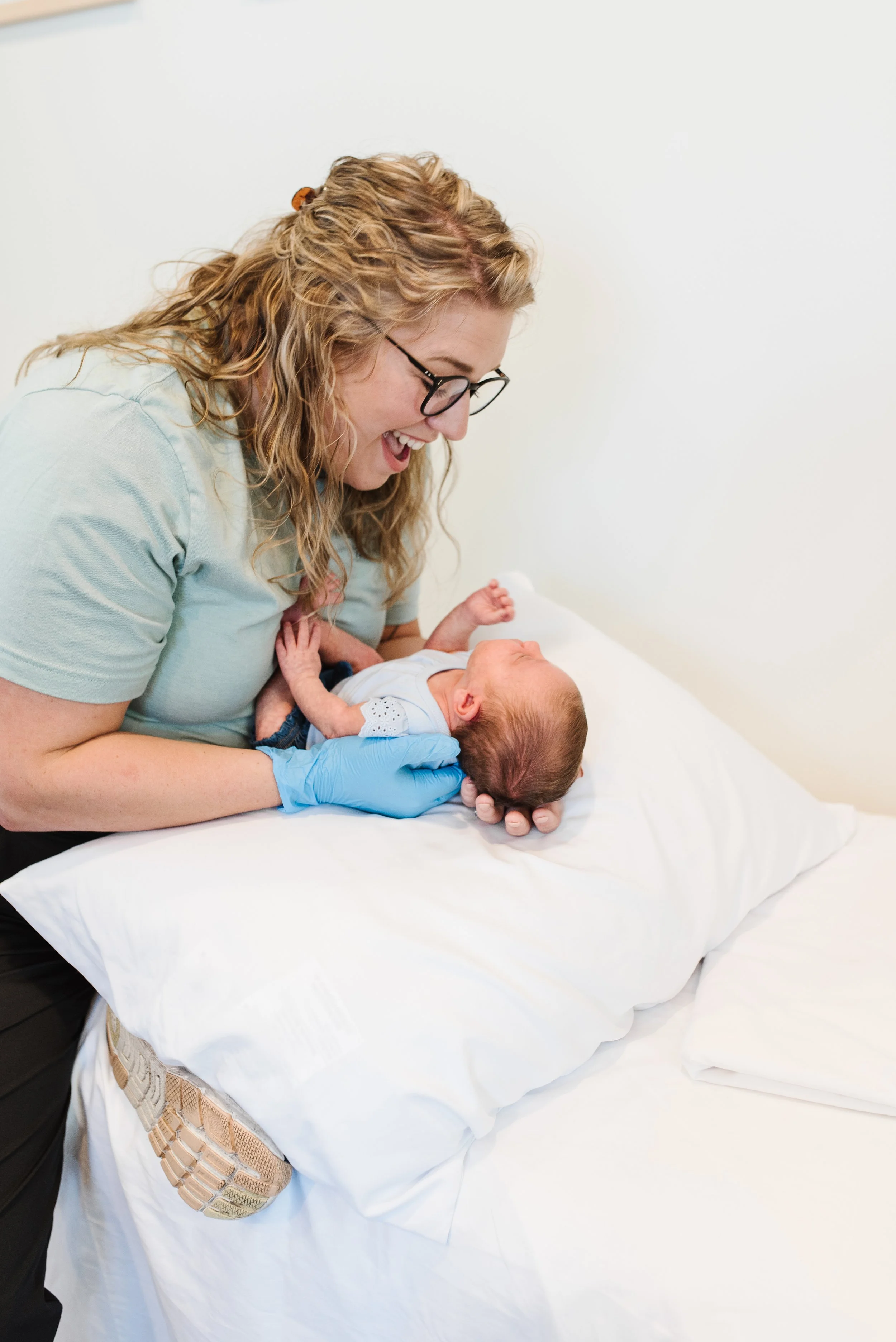
Infant Feeding & Development
Family-centered, functional, whole-body based therapy for your infant.
-
Some of the most common conditions in infancy & toddlerhood we treat include:
TOTs (Lip/Tongue Ties)
Bottle/Breast Feeding Challenges
Pre/Post-Frenectomy
Open Mouth Posture
General Tension
Torticollis & Plagiocephaly
Colic/Fussiness
-
Tethered oral tissue (or TOTs) refers to tissue that is restricting oral function. We call these a “tie” when they occur. These can be found in some people on their upper lip, underneath their tongue, or alongside their cheeks, and can negatively impact oral-motor function and growth.
-
We first offered tongue/lip tie assessments to help our mothers out. Through listening and watching our clients feed their 6-week old at their pelvic floor therapy evaluations, many times we found that we were watching some signs of feeding challenges and other signs of developmental delays & issues.
Tongue/lip ties, tension, plagiocephaly, torticollis, and other challenges are often also found in our toddlers & kids who we treat for chronic constipation, daytime wetting, encopresis, bedwetting, and more. There is absolutely a link between these issues, and since our occupational therapists already have backgrounds in pediatrics and infant development- we decided to pursue the continuing education needed to assess & treat tongue & lip ties!
-
That’s a great start! However, that’s not a movement always affected by TOT.
We should find out whether your baby has any functional deficits of a tongue/lip tie before clearing him/her.
-
Please make sure you ask a provider who has specifically taken coursework on functional TOTs. It’s important to have someone perform a functional assessment, not just check range of motion or look at weight gain.
-
It depends on your baby’s oralmotor function!
Many times, a tie release isn’t necessary and your baby would likely benefit more from therapy. If you’re breastfeeding, finding an IBCLC who is TOTs-educated is important as well. We have a list of providers for you to check out!
If there is an indication that baby may benefit from a TOTs release, then we are happy to point you in the direction of multiple exceptional providers in the area.


